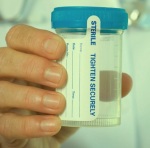 By: Jacqueline Bain
By: Jacqueline Bain
Monty Ray Grow was a defensive back on the Florida Gators’ football team from 1990 until 1993. He contracted to play for the Kansas City Chiefs in 1994 and then for the Jacksonville Jaguars in 1995 and 1996. On February 5, 2018, he was convicted by a federal jury in Miami for his chief role in a massive healthcare marketing scheme designed to defraud Tricare.
Tricare is a health benefit program that provides civilian benefits for U.S Armed Forces military personnel, retirees, their dependents, and some military reservists. Tricare is a Department of Defense Program.
In September 2014, Grow entered into an agreement with a compounding pharmacy in Pompano Beach, Florida, wherein the pharmacy would pay Grow’s marketing company a commission equal to fifty percent (50%) of what the pharmacy netted in Tricare reimbursement from Grow’s referral of Tricare beneficiaries to the pharmacy. (Later on, Grow became an employee of the pharmacy.) Grow then used his commission to offer and pay recruiters to convince Tricare beneficiaries to use this pharmacy. Additionally, Grow offered and paid Tricare beneficiaries themselves to use this pharmacy.Continue reading

 By:
By:  By:
By: 



